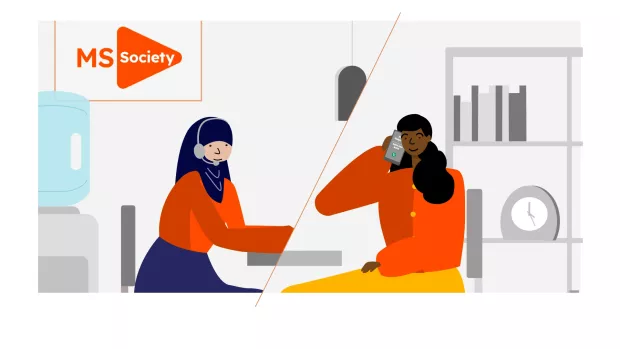
Early treatment
Scientists agree: people with MS should be offered disease modifying therapies (DMTs) as close as possible to diagnosis.
Why is early treatment important in MS?
We know early treatment improves long-term health and wellbeing by slowing down the build up of irreversible damage and reducing the number of relapses people experience.
Starting MS treatment early is best but if you start later it can also have some benefits.
What did people used to think about treating MS?
Experts used to think that when a person with MS had a relapse it meant symptoms appeared or quickly got worse and then went away (or remitted).
Thanks to more MRI scanning, we now have evidence that when symptoms get better, the damage that MS causes often doesn’t stop. So even when someone with MS is not having a relapse, MS may carry on attacking their body. This could lead to nerve damage that can’t be put right.
This evidence changed what we understand about MS and how to treat it. Rather than waiting to see whether more relapses occur, DMTs should be offered as close as possible to diagnosis, before damage to the body has built up.
What does this mean for me?
If you'd like to explore your treatment options, we recommend you speak to your neurologist or MS specialist, so you can decide what's right for you.
If you don't have a neurologist or MS specialist, you should visit your GP and request a referral.
Talking to your MS specialist about treatments
Official guidelines say that you should be seen by someone who's a specialist in MS at least once a year. This is to talk about your care and treatments. If this annual review doesn't happen, you should ask your GP, MS nurse or neurologist to get one made for you.
When you see your specialist, it’s easy to forget questions that were on your mind. We've developed a checklist to help you talk through what you want from treatment and how to get it.
Use our talking about treatments checklist
Newly diagnosed?
There's a lot to take in when you're newly diagnosed with MS. Our newly diagnosed emails can help you go through it and make sense of living well with MS.






